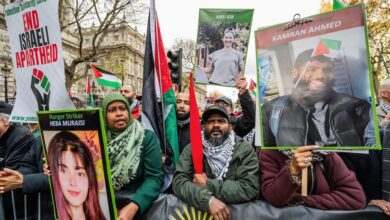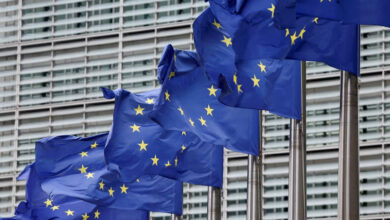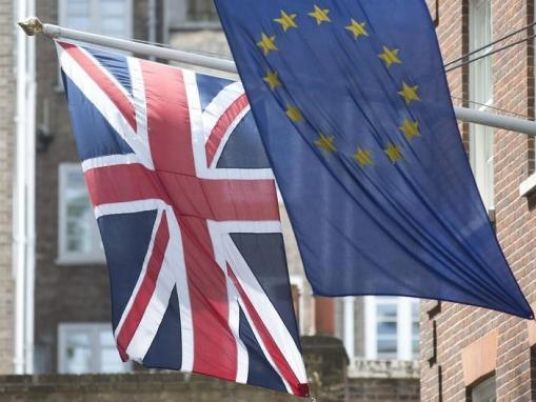
SALZBURG, Austria (Reuters) – EU leaders lined up on Thursday to tell Theresa May she needs to give guarantees on the Irish border before they will grant her the Brexit deal the prime minister wants to avoid Britain crashing out of the bloc.
Arriving for a second day of summitry in Austria, May’s European Union peers rammed home their message on her plea for them to ease up on a “backstop” plan dealing with the border between the British province of Northern Ireland and EU member state Ireland.
The backstop would keep Northern Ireland under EU economic oversight if London and Brussels cannot agree a trade pact to keep UK-EU borders open, an idea that May and a small party in the province that props up her minority government oppose.
“We have very clear principles regarding the integrity of the single market and regarding precisely the Irish border,” French President Emmanuel Macron told reporters at the summit in Salzburg. “We need a UK proposal precisely preserving this backstop in the framework of a withdrawal agreement.”
Irish Prime Minister Leo Varadkar had his own early morning meeting with May, after she had asked the summit over dinner the previous night not to ask her effectively to divide the United Kingdom. But Varadkar warned that Dublin was gearing up for the talks to collapse without a deal if London refuses to budge.
“We’re ready for that eventuality, should it occur. But I think we need to double our efforts over the next couple of weeks to make sure that we have a deal,” he said.
Leaders had listened politely to May for a few minutes around the summit dinner table, laid in the Salzburg theater used in the finale of the “The Sound of Music” film. EU chief executive Jean-Claude Juncker said: “It was interesting, it was polite, it was not aggressive.
“She is doing her job.”
After dining on Wiener Schnitzel and wrangling for four hours over Europe’s migrant problem, May was given the floor and tried to win over her 27 peers by asking them what they would do if they were asked to agree a “legal separation” of their countries.
She maintains that the backstop would divide Northern Ireland from the rest of the United Kingdom in terms of customs after Brexit day in March.
Maintaining a united front that refuses to let May bypass the talks run by EU negotiator Michel Barnier, the 27 leaders did not respond to her. They will discuss the issue among themselves over lunch on Thursday, setting what Barnier hopes can be a path to a final deal in two months.
‘Get the deal done.’
“I believe that I have put forward serious and workable proposals,” May told the summit, according to a senior British government source. “We will of course not agree on every detail, but I hope that you will respond in kind.
“The onus is now on all of us to get this deal done.”
For now, however, May faces criticism of her “soft Brexit” approach at her Conservative Party conference in 10 days and there as little sign of either side giving way.
One of her party allies called her “Chequers” proposal for a close trade relationship with the EU that would ease the problem of the Irish border “delusional” and “dead as a dodo”.
“At this stage, it’s a standstill. There is no progress,” Lithuanian President Dalia Grybauskaite told Reuters.
A senior EU diplomat said May seemed to be edging toward compromise, offering new proposals on how to avoid differing economic regulations disrupting trade and speaking of a “middle way”.
With barely six months until Britain leaves the EU, there is pressure on both sides as any failure to strike a deal to tie up legal loose ends brings the risk of serious disruption. “You can hear very clearly the clock ticking in the room,” said the diplomat. “And that’s starting to have a psychological effect.”
EU officials again said Britain had to move its own position over how to avoid erecting border posts on the Irish border, which will become Britain’s only land frontier with the EU, as well as on future economic cooperation after Brexit day.
A government source suggested Britain would come up with other proposals on Northern Ireland “in due course”, but May has so far been reluctant to move from her Chequers plan, hashed out at her official country home in July.
Reporting by Gabriela Baczynska, Alastair Macdonald and Francois Murphy; Additional reporting by Elizabeth Piper; Editing by Lisa Shumaker; editing by David Stamp.



